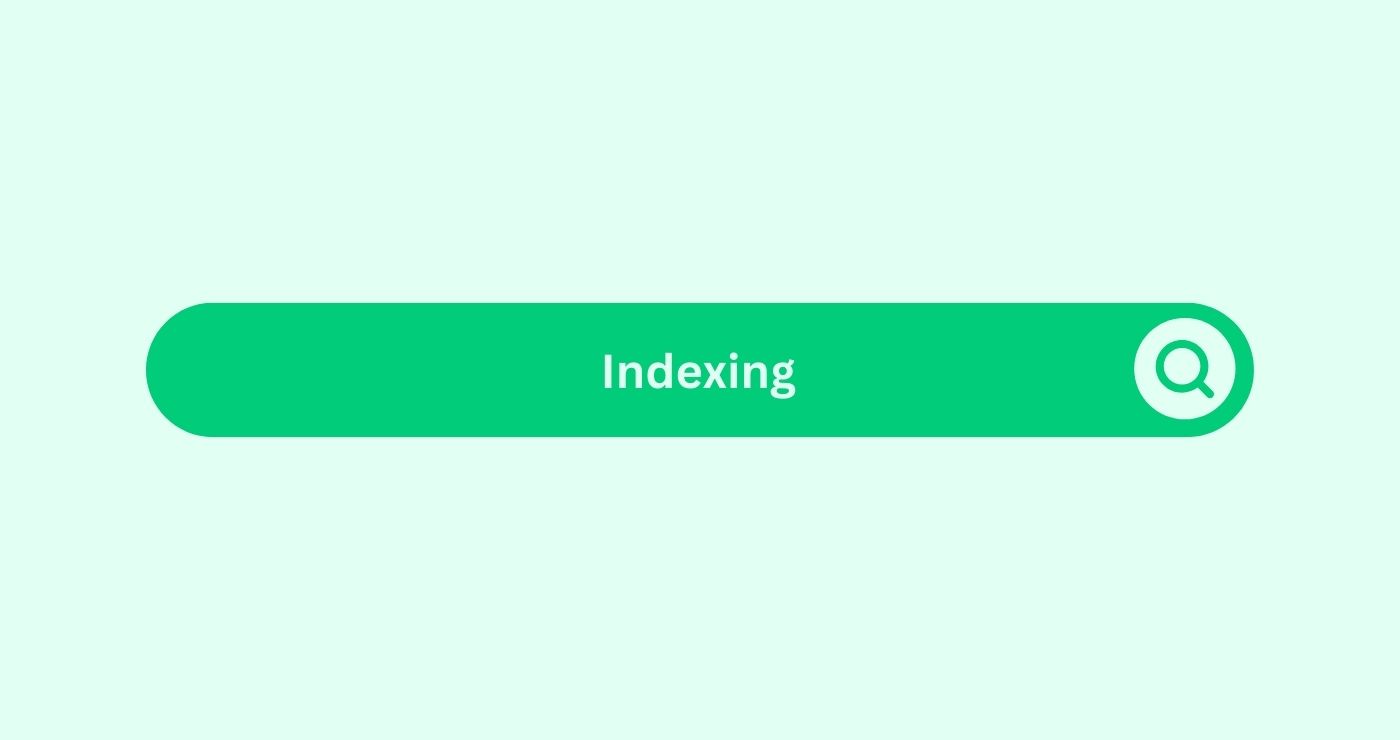Definition
Indexing in content marketingDefinition Content marketing strategically creates and share... involves search engines storing and organising website content for retrieval in search results. This process is critical for ensuring that your content is visible and accessible to users searching for relevant information. Understanding indexing is crucial for performance marketing agencies and Auckland SEO experts to enhance their clients’ content discoverability and search engine rankings.
How you can use
To ensure new webpages appear in search results, optimise internal linkingWhat is Internal linking? Internal linking refers to the pra... and submit a sitemapDefinition A site map is a file that lists all the pages of ... for search engines to index them efficiently.
Key Takeaways
- Crawlability: Ensure that your website is easily crawlable by search engine botsDefinition Bots, or robots in SEO, are automated software th... to facilitate efficient indexing of your content.
- High-quality content is more likely to be indexed and ranked in search results when it is published and optimised for target keywordsDefinition Keywords are crucial for SEO success as they conn....
- XML Sitemaps: Create and submit XML sitemaps to search engines to provide a roadmap of your website’s structure and prioritize pages for indexing.
- Internal LinkingWhat is Internal linking? Internal linking refers to the pra...: Implement a logical internal linkingWhat is Internal linking? Internal linking refers to the pra... structure to help search engine crawlersDefinition Crawlers, or spiders, are search engine tools tha... discover and index all relevant pages on your website.
- Monitoring and MaintenanceDefinition Maintenance in the SEO space refers to the ongoin...: Regularly monitor your website’s index status using tools like Google Search ConsoleDefinition Google Search Console is a free web service from ... and address any indexing issues promptly to maintain search visibility.
FAQs
What is the difference between crawling and indexing?
CrawlingWhat is crawling in the context of SEO? Monitor SERP metrics... is the process of discovering and fetching web pages by search engine botsDefinition Bots, or robots in SEO, are automated software th..., while indexing involves analyzing and storing these pages in the search engine's databaseDefinition A database in social media marketing is a structu... for retrieval.
How long does it take for a webpage to be indexed by search engines?
The time taken for indexing can vary depending on factors such as website authority, content quality, and search engine crawl frequencyDefinition Frequency in Social Media Marketing refers to the.... It may take from a few hours to several weeks for a webpage to be indexed.
Can I manually request indexing for my website's pages?
Yes, you can request indexing for individual web pages using Google Search Console's URL Inspection tool. However, Google may prioritize crawlingWhat is crawling in the context of SEO? Monitor SERP metrics... and indexing based on its algorithms.
Why are some pages on my website not indexed by search engines?
Pages may not be indexed due to various reasons such as crawlability issues, low-quality content, or manual actions from search engines. Addressing these issues can improve the chances of indexing.
Does indexing guarantee ranking in search results?
No, indexing does not guarantee ranking. While indexed pages are eligible to appear in search results, their ranking depends on factors such as relevanceDefinition In SEO, relevance refers to the degree to which a..., quality, and competitiveness of the content.
What are some common indexing issues to watch out for?
Common indexing issues include duplicate contentDefinition Duplicate content in the SEO space refers to iden..., thin or low-quality content, crawl errors, and issues with robots.txtDefinition Search engine crawlers use directives from Robots... or meta robots directives.
How can I check if my website's pages are indexed by search engines?
You can check the index status of your website's pages using search engine operators like "site:" followed by your domain name in the search bar.
Should I block certain pages from being indexed?
It depends on your website's goalsIn the SEO space, "Goals" refer to specific, measurable obje... and content strategyDefinition Content strategy involves planning, creating, pub.... While some pages like admin pages or duplicate contentDefinition Duplicate content in the SEO space refers to iden... may be blocked, important content pages should be indexed for maximum visibility.
Can I prioritize indexing for specific pages on my website?
Yes, you can prioritize indexing for specific pages by optimizing their internal linkingWhat is Internal linking? Internal linking refers to the pra... structure, submitting XML sitemaps, and ensuring they have high-quality, relevant content.
How often should I check my website's index status?
It's recommended to regularly monitor your website's index status using tools like Google Search ConsoleDefinition Google Search Console is a free web service from ... and address any indexing issues promptly to maintain search visibility.




